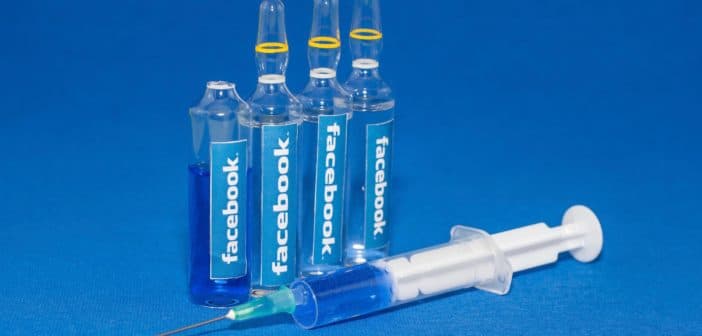 We have all heard somebody joke that “Facebook is like crack.” Well, there is most certainly truth behind this jest. A story on AJC.com (The AtlantaJournal-Constitution online) reveals Facebook addiction is not just a punch line. According to the article, a new study revealed that the brain reacts similarly to the experiences of chronically scrolling through the newsfeed and abusing a substance—or even gambling. As someone who used to abuse a substance and now goes through periods of checking Facebook obsessively, I totally buy it.
We have all heard somebody joke that “Facebook is like crack.” Well, there is most certainly truth behind this jest. A story on AJC.com (The AtlantaJournal-Constitution online) reveals Facebook addiction is not just a punch line. According to the article, a new study revealed that the brain reacts similarly to the experiences of chronically scrolling through the newsfeed and abusing a substance—or even gambling. As someone who used to abuse a substance and now goes through periods of checking Facebook obsessively, I totally buy it.
Zuckerberg’s Mind Trap
The study, conducted by a team at California State University and published in “Psychological Reports: Disability and Trauma,” asked college students to complete a questionnaire that assessed addiction-related signposts such as anxiety, withdrawal and conflict. Then they took a different test that measured responses to certain images, some of which pertained to Facebook. According to AJC, “Those who responded quickly when they saw Facebook-related images also scored high on the addiction test.” Apparently some students had quicker reflexes responding to Facebook images than road signs. Makes you feel really safe to be driving around in 2016, doesn’t it? Co-eds recognize a Facebook notification symbol quicker than a roadside hazard symbol. Fantastic work, America.
Basically the neural responses to Facebook-related imagery are similar to those that happen when someone is abusing a drug or even gambling. The amygdala is activated and that identifies the significance of certain events and/or emotions. Additionally, the striatum portion of the noggin is fired up when we’re engaging with our online “social network” and that triggers our rewards system. Mark Z and his crew have really got us right where they want us. World domination is currently being plotted in Palo Alto.
The Perfect Addiction Storm
Nir Eyal, the author of Hooked: How To Build Habit-Forming Products, was interviewed about our crippling dependence on Facebook and he purports that social media has four essential elements that make it very conducive for addictive behavior: trigger, action, reward and investment. I found Eyal’s breakdown pretty spot on. The trigger can be whatever emotion someone is having that he or she wants to escape like stress or boredom. The action is logging onto whatever platform they’re choosing as their poison. The reward is witnessing drama (“Greg and I have decided to go our separate ways”) and/or monotony (“Ella finally pooped in the potty like a big girl! I can’t believe how fast she’s growing up”). The investment is contributing one’s own media to the circus like a photo or a status update, or responding to a friend’s by way of comment, thumbs-up or one of Facebook’s shiny new “reaction” emojis (barf).
Whole Lotta Conclusion Jumping
So the experiment that led to this hypothesis only involved 20 students. That’s some serious chump change compared to other studies I’ve written about involving addiction. And what do they even mean with the vague term “responses” to Facebook images and scoring “high” on a test about addiction-related emotions? Luckily, the consequences for a perceived Facebook addiction are not nearly as detrimental as showing up to work wasted or commencing the morning with a cup of coffee and a line of cocaine. Weaning off Snap Chat will never be as difficult as kicking a heroin habit and even Instagram doesn’t have a physiological grip on us, no matter how many vortexes of privileged celebrity kids’ accounts we find ourselves sucked into (whoops, that might just be me). Do hearts and likes give us a dopamine hit? Most definitely. Is Internet rehab a thing? Indeed. But I think a regular Facebook checkin’ habit is relatively harmless… for now.
Sponsored DISCLAIMER: This is a paid advertisement for California Behavioral Health, LLC, a CA licensed substance abuse treatment provider and not a service provided by The Fix. Calls to this number are answered by CBH, free and without obligation to the consumer. No one who answers the call receives a fee based upon the consumer’s choice to enter treatment. For additional info on other treatment providers and options visit www.samhsa.gov.




